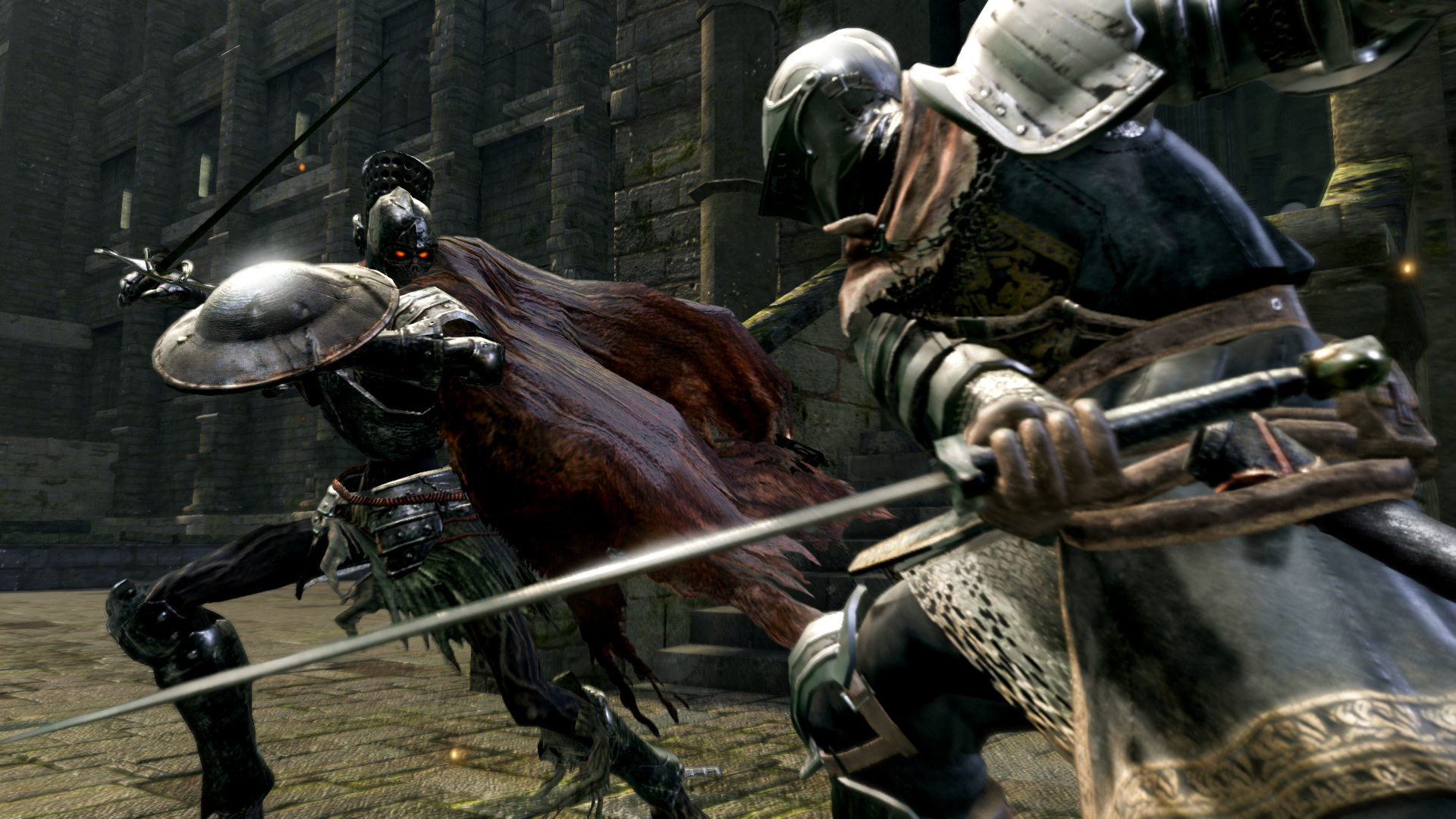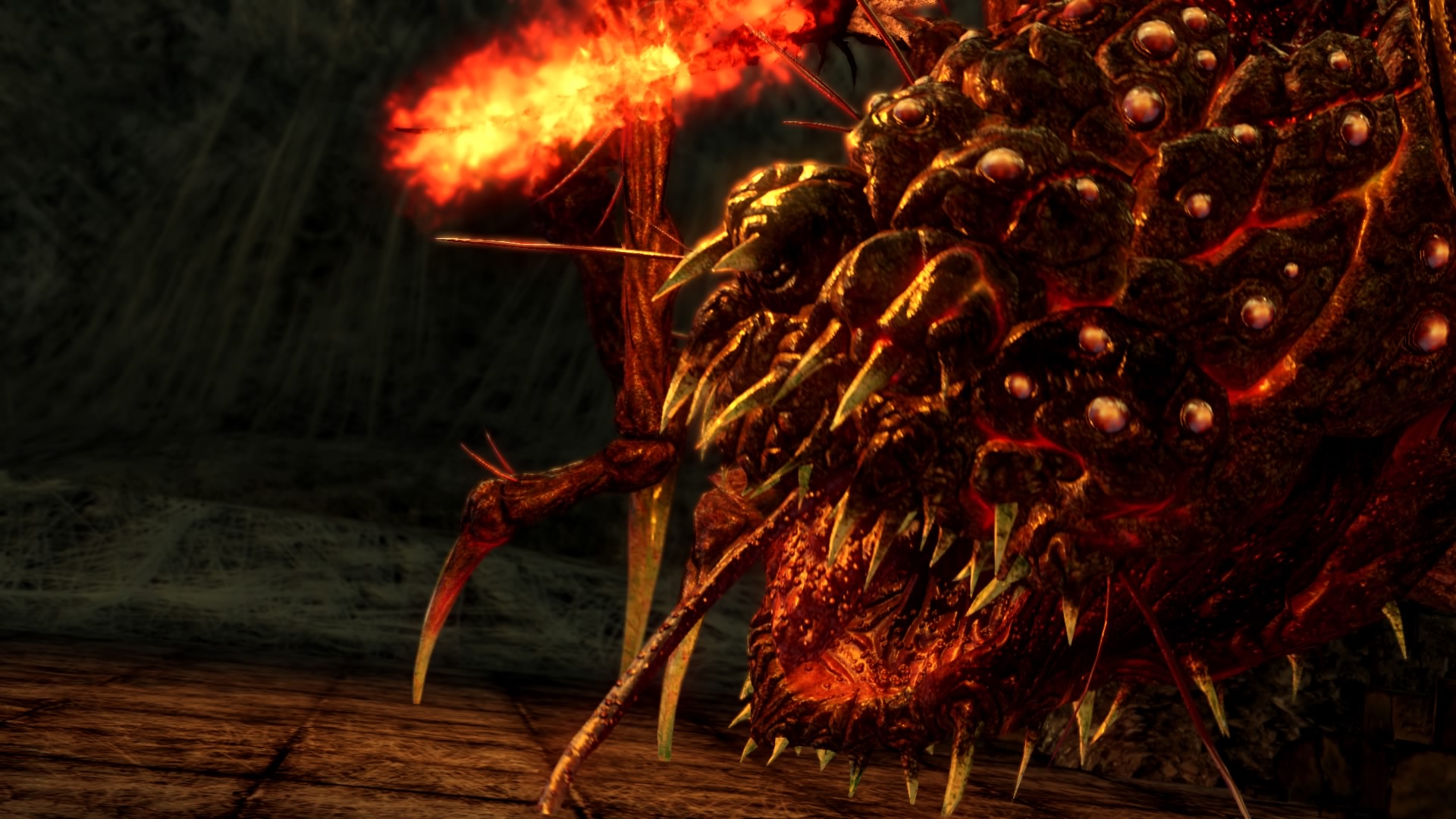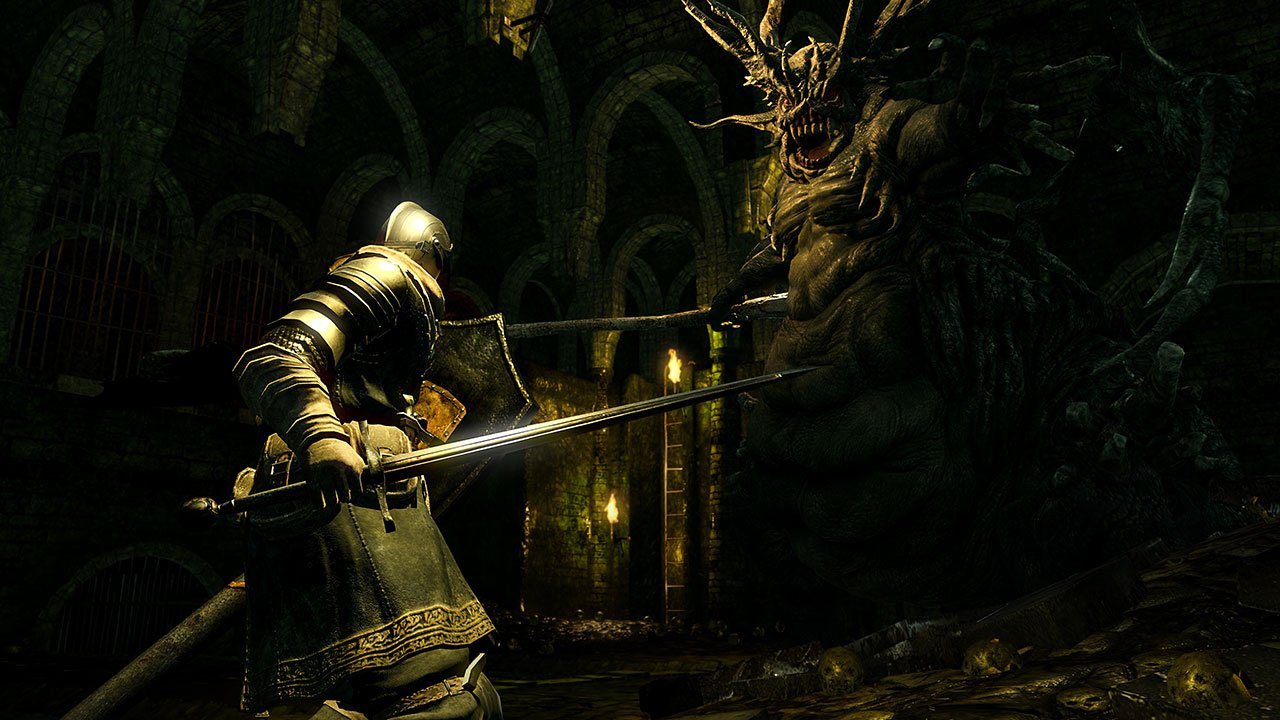Dark Souls Remastered: tips for new players
As Dark Souls Remastered hits consoles and PC, we’re reminded here at GodisaGeek, not only what a great game the original Dark Souls was, but also how challenging it could be for newcomers. And not just because by reputation Dark Souls was a hard game, but also because it explained very little about its mechanics, instead opting for the player to try and figure it out as they went.
Well if you are one of those newcomers to Dark Souls, and plan to pick up the Remastered version, then have no fear. We have pooled together the collective wisdom (or our equivalent at least) of not one but three Dark Souls’ veterans in the form of Mick Doherty, Gary Bailey, and Chris Hyde to offer you some advice for when you’re starting out into the world of Lordran. We’ve tried to think of the types of things we wish we knew going in, and hopefully by sharing these, it should make that steep learning curve just that little bit more manageable.
Mick Doherty
Know your classes
Dark Souls is known for not explaining, well anything really, but I’m here to give you new Souls players some tips around levelling and starting classes that should hopefully fit around your particular play-style.
First, let’s go into a brief bit of detail about what each of the character attributes actually mean:
Vitality – This is what you’re going to want to level up if you want an increase to that sweet health bar.
Endurance – A quadruple threat affecting your stamina, equipment burden, physical defence and bleed resistance! Can’t go wrong with a 4 in 1.
Attunement – Increases the amount of spells slots you have. Magic users are going to want to get in on this.
Strength – Increases your attack power for some weapons, as you’d expect. Higher strength levels will also be needed to wield some weapons so keep an eye on what you’re buying.
Dexterity – Same as strength to be honest so let’s move on.
Resistance – Each new level of this wee gem will grant you an increase to physical and flame defence as well as boosting resistance to the forever present poison effect.
Intelligence – Boost the thinking capacity of your bad self with this attribute which again, is needed for some weapons, but also increases your Sorcery power. Cue the “ooohs” and “ahhhs”.
Faith – Another magic related stat. This is also needed for some weapons and boosts your Miracle power. (Disclaimer: This attribute does not grant the ability to walk on water, reverse blindness, turn water into wine, or duplicate bread and fish to feed the masses).
Humanity – While not a proper attribute like those above, in that it can’t be levelled up, the more humanity you have on you the higher the probability of discovering items and also increases Curse resistance.
Now that you’ve had a crash course in attributes I should probably mention a bit about the classes you have to choose from. There are 10 classes in all but honestly it doesn’t matter in the grand scheme of things which one you pick from an attribute perspective. Each class only really serves to give you a slight boost in a particular attribute at the start of the game. Once you get right into it you’ll be levelling up the attributes noted above to suit your play-style within an hour or two.

Having said that there are a few classes that I would recommend for any newcomer to Dark Souls.
If you’re more of a melee player that doesn’t mind getting up close and personal with enemies then the Warrior or Knight class is for you. Each has a slight advantage over the other in the early stages of the game with the Warrior having a slightly higher Strength, Endurance and Dexterity meaning you’ll be able to take out enemies quickly, but the Knight, even though it’s slightly weaker, has a higher Vitality meaning you can take a bit more punishment. It’s up to you what’s more important in a fight.
If you’re more swayed by a bit of magic then the Pyromancer or Cleric class should be right up your street. With the Pyromancer class you’ll start with the sought after Pyromancer Flame, which you won’t get til later on in the game with other classes, and the even spread of attribute distribution means this is one of the stronger starting classes.
The Cleric class is also up there as a good magic choice that relies more on Strength and Faith. You’ll start with the Heal miracle meaning you’ll have more ways to heal if you run out of Estus Flasks (the game’s standard healing item).
If you’re not looking for PvP right away then Cleric or Knight are the way to go as they both include the Way of White covenant. The WoW covenant increases the chance that you’ll match with cooperative covenants and less likely with hostile invasion covenants. (More from Gary about online later).
Levelling advice
Onto the levelling! Once you’ve picked your class and built up enough souls to level up your character you’re going to want to know what’s best to go for. As a rule I personally would make sure to level up the Vitality and Endurance first. The higher each of these the more damage you can take thanks to a higher Vitality and more Endurance means you’ll be able to throw more hits and move around enemies quicker thanks to the higher equipment burden. You’re going to need to be able to move against those faster enemies and bosses.
A tip around levelling I wish I knew on my first playthrough, would be to stick with the attributes most suited to your class. On my first playthrough I started with a melee based character and decided around the halfway mark I wanted some magic under my belt, meaning I’d have to invest souls in the Attunement and Intelligence attributes. This is the worst thing you could do as all it does is stall your progress when you get to newer areas with stronger enemies.
Once you’ve chosen your class, whether that be melee or sorcery, stick to those attributes related to that class if you want a relatively chilled time when it comes to new areas.
To summarise; Vitality and Endurance are a must for levelling, along with Strength and Dexterity for melee classes, Intelligence and Dexterity for the Pyromancy class or Faith and Dexterity if Cleric is more your style. Dexterity is needed for equipping some stronger weapons and also helps reduce the casting time for all your magics.

Gary Bailey
Bait enemies for an advantage
I find that one of the best strategies for Dark Souls is to bait enemies, usually using a bow or some kind of throwing weapon. Running in with sword a-swingin’ just doesn’t work in these games, even if you have the wide swing of a bastard sword or a battle axe, because you will always find yourself overwhelmed in moments.
Patience is key in the entire Souls series, especially as you progress further into this first Dark Souls entry. Some later areas love to dump you into seemingly impossible battles, with snipers and big groups of melee-based beasties, which may test your calm to its limits. You might die several times tackling one room, reducing your patience with each death, but if you take a deep breath and slow down, perhaps even come back after a break, you will probably see weaknesses and opportunity. Throw an Alluring Skull (an item which draws enemies to it), carefully mind you, draw a few of the pack away and try picking them off from a distance. Or use your bow to hit one, which will usually see them bounding off on a solo mission to murder you, which leaves them entirely open to a quick round of wild slashing and hacking.
Now, this tactic may not always work, as one or two attempts at drawing them out will result in all of them triggering at once. There’s no getting around the fact that this is a bit of a cheap move by the game, but you can sometimes back up and one will continue to pursue you beyond the AI’s usual limit. If the game wants to use cheap tactics, you bloody well use them right back. When outside of their AI boundary, they’ll get stuck between the need to return to their zone and the need to stop you from bludgeoning them to mush. Even the best players love to “cheese” enemies, so don’t think that it’s a bad thing to do the exact same thing.
Join in jolly cooperation
The best players might love to use cheese tactics and effectively cheat the game, especially when it comes to the willy-waving of speedruns, but strangely they often frown upon summoning other players to help you out. The “hardcore” players have been known to deride players for needing help, but you know what? No. Just, no. There’s no room for that kind of snobbery in gaming, so if you see a summon sign outside a boss room or beside a bonfire, go ahead and accept the help as much as you bloody well want.
There is a reason why Dark Souls is known as one of the harder games of its generation, and the online nature of the game means that other players are always around. Some may delight in invading others’ worlds to ruin their day, but many love to help out newer players, even if it’s just to earn a few extra souls for their own character. Or perhaps to earn another Sunlight Medal for the Sunbros, the game’s affectionately-named co-op covenant. I do find it funny that Solaire is the poster boy for most players, with his entire existence being to primarily steer the player toward “jolly cooperation,” and the unofficial slogan for the series has become the Warriors of Sunlight covenant’s theme: Praise the Sun; yet despite all this, co-op is still seen as a bad thing by many. Yet it’s in the game for a reason and you should never feel like you can’t accept help from others. Hell, that’s good advice for life, really.

Pay it forward, too. Maybe you’re in need of a few levels to get through a tough section, or you simply want to “over-level” and stay ahead of the game a little; put down your summon sign (done by using the White Soapstone item you get fairly early on) near a boss door and help out your fellow players. It’s always good fun and the bowing, waving and unspoken etiquette of co-op is one of the best things in the Dark Souls series. Remember that boss you fought earlier, that gave you a few kickings? Go help others to beat it, now that you’re stronger.
The best advice I can give, then: don’t ever let anyone tell you that you shouldn’t summon. Play the game how you want. Just have fun.
Chris Hyde
Get the most from your Stamina
One part of Dark Souls that I personally think is more important than any other is your Stamina bar, and managing it well can be the difference between yet another death or progress. Represented as a green bar at the top of the screen, your character’s Stamina depletes whenever you perform a physically demanding action. That could range from anything to running, attacking with a weapon, blocking with a shield, and even dodging an attack with an evasive roll. When your Stamina bar runs out completely it means you can’t complete any more of the aforementioned actions and leaves you vulnerable for a while whilst it recovers. And being vulnerable is not what you want to be in a game where the enemy will show you no mercy. So, management of Stamina is key.
Mick mentioned earlier that levelling up your Endurance will increase your stamina bar, so this is always a good choice as it means you can perform more actions before it runs out, however this will just be papering over the cracks if you don’t stick to a few guiding principles. Firstly, just simply keep an eye on it during combat. Mashing attack repeatedly will see it drain quickly if left unchecked, so always ensure you have some left in reserve. Also note that Stamina regenerates slower with your shield up, so balance blocking when you need to and lowering your shield when the enemy is not attacking so that you have enough Stamina for your next attack flurry.
Aside from blocking, dodging with a roll is another excellent tactic to avoid harm. It uses Stamina but if timed right, and done in the right direction can avoid an attack altogether, and put you in a great position to counter. But note, your dodging speed is linked to your equipment burden. There is a maximum weight of equipment you can equip and each piece has a given weight. But simply being under the maximum is not the be all and end all. Being under 50% maximum load will see your character move and dodge much faster. Over 75% and they will move like they are walking through treacle, making evasive manoeuvres very difficult. Wherever possible stay below 50% equipment load, and if you find you need to increase your maximum, then levelling up Endurance also helps in this area too.

Prepare to die. A lot
It feels like a cop out piece of advice initially. After all you’re probably reading this list of tips to try and avoid death as much as possible, so why am I here effectively telling you to just accept the inevitable, to just suck it up and embrace death? Well quite simply put, because you will die. A lot. And to be honest from quite early on in the game too. But what I’d wish I’d known way back when I started trying to tackle From Software’s beast of a game, was that such failure is a part of the game. In virtually all other games I’d played previously, dying meant I’d failed, it meant I wasn’t good enough, it felt like a personal slight. Thankfully in those games it didn’t happen too often, but in Dark Souls, it does, and I won’t lie, because I was treating it like all other games, I genuinely gave up on the game after a while, and came back to it much later.
And I’m glad I did, because once this game clicks, it’s one of the most enjoyable experiences I’ve had. It is a game that is built on trial and error, with an emphasis very much on the latter. You’ll be presented with a scenario, be it a group of enemies, or a hostile environment or a huge boss, and you’ll give it a go. You’ll likely fail first time, but you’ll have gained a bit of knowledge about how enemies attack or a boss’ move-set. Next time you’ll try something different, and it might work, or it might not, but each retry gains knowledge on the player’s part, and it means when you finally beat that section or kill that boss, the buzz from doing so is incredible.
The game does have another mechanic that you need to learn to deal with. Every time you die, at your place of death will be your bloodstain. If on your next try you manage to get back to that location you can retrieve your bloodstain and get back all your souls (the game’s XP) you had when you died. This dynamic can, if you let it, put enormous pressure on you as a player. There’s a natural instinct to not want to lose progress, so you instil in your brain a need to retrieve your souls. Sometimes you will, but sometimes you will die on your way to your bloodstain and lose those souls forever. It can be heartbreaking especially if said haul of souls was the culmination of half an hour’s work, and you could really have done with levelling up. But I cannot stress this enough, you need to try as much as possible to not be afraid of loss. Of course always try and recover your bloodstain – it will always help – but don’t be too disheartened if you don’t. There will also be more souls to get in the future, just remember the game can’t take away what you will have learned with those deaths and how you could tackle that situation differently moving forward.





